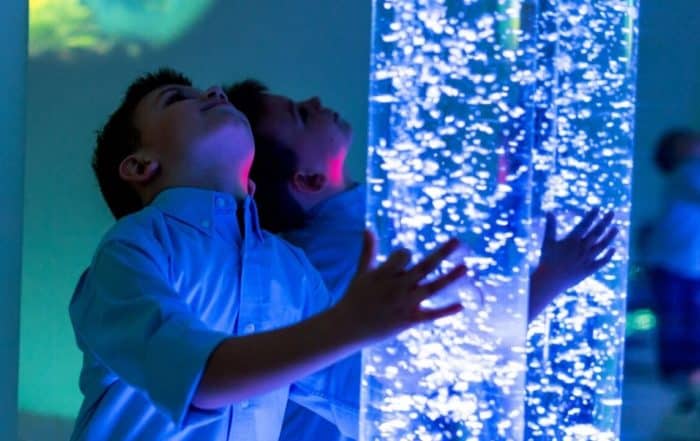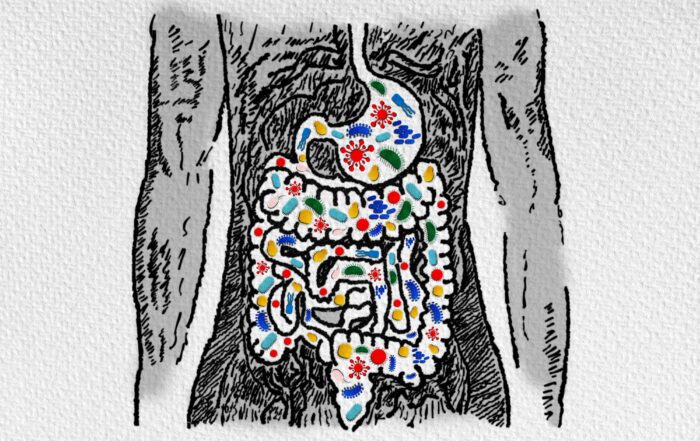10-2-2019 — A new study suggests that children, but not adults, with autism spectrum disorders (ASD) have impairments in interoception. Interoception is the ability to sense the internal state of the body—for instance, to accurately identify sensations such as hunger, thirst, pain, and internal temperature.
Research shows that accuracy in identifying interoceptive signals is associated with skill in emotion processing, decision-making, self-regulation, empathy, and theory of mind (the ability to understand that other people have thoughts and feelings). Toby Nicholson and colleagues, the authors of the new study, say, “These wide-ranging associations are in line with theories of embodied cognition that imply cognition is situated in bodily systems, and also point towards a role for interoception in both self and other processing. This has led to a growing interest in the importance of interoception for disorders such as ASD.”
The researchers say, “The idea is that a difficulty interpreting one’s own internal bodily signals early on may interfere with learning about the association between these low-level bodily signals and other higher level feelings and thoughts, restricting the comprehension of oneself, which in turn would have similar effects on understanding other selves.”
To test the interoceptive accuracy of individuals with ASD, the researchers performed two experiments. In the first, involving 21 adults with ASD and 21 neurotypical controls, participants completed two tasks. First, they closed their eyes and silently counted the number of heartbeats they felt during specific time intervals.

Next, they exhaled into a peak flow meter, attempting to reproduce the intensity of each of three exhalations (weak, medium, and firm). The researchers then repeated the heartbeat experiment with a group of 21 children with ASD and 21 neurotypical children.
The researchers found that children with ASD, but not adults, had significant impairments in interoceptive accuracy. This may suggest, they say, that “a ‘decoupling’ of interoception and emotion processing among some children with ASD results in emotions never being fully anchored within the body, making emotions difficult to understand in self and others across the lifespan even once interoception difficulties have resolved.”
Another possibility, they say, is that “local interoceptive signals are not integrated together in a global sense,” affecting not just emotional processing but also the ability of interoceptive processes to bind with other information sources such as memory and perception. Still a third possibility, they suggest, is that interoception and theory of mind are independently impaired, which could explain why emotion-processing impairments persist in ASD even after interoceptive impairments have resolved.
“Interoception is impaired in children, but not adults, with autism spectrum disorder,” Toby Nicholson, David Williams, Katie Carpenter, and Aimilia Kallitsounaki, Journal of Autism and Developmental Disorders, May 24, 2019 (online). Email: David Williams.
This article also appears in Autism Research Review International, Vol. 33, No. 3, 2019
Autism and Sleep – Research Updates
Dara S. Manoach, Ph.D., discusses research updates on autism and sleep. She outlines aspects of a good night’s sleep and emphasizes the role of sleep cycles in cognition, memory, and learning.
Sensory Considerations for Social Communication
Vanessa Rentschler, Au.D., CCC-A, C.A.S., discusses sensory considerations for social communication in autism. She highlights common auditory processing differences, available services, and the overlap of visual and auditory sensory processing in
Animal study reveals clues that developmental vitamin D deficiency may be associated with gut alterations in autism
Vitamin D deficiency is strongly implicated as a risk factor for autism spectrum disorders (ASD), and researchers in Australia report evidence that vitamin D deficiency during early development may increase the likelihood
Pain, Sensory Issues and Autism
Dr. Tami Bar-shalita, Merry Kalingal Levi, and Dr. Yelena Granovsky explore the intricate connections between pain, sensory perception, and autism. They discuss quantitative and qualitative research findings that shed light on the
New multi-national study adds to evidence linking alterations of the gut microbiome to autism
Strong new evidence linking alterations of the gut microbiome to autism spectrum disorders (ASD) comes from a new multi-national study by James Morton and colleagues. In the study, researchers in North America,
Editorial: Revisiting Two Lesser-Known Teaching Strategies to Enhance Speech Production in Autism
In this editorial, I would like to shed light on two methods for improving the speech production of individuals on the autism spectrum, discuss potential neurological factors that may underlie their effectiveness,







